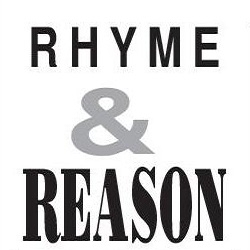Of Speed & Scale - I
| Date :11-Apr-2025 |

By Kartik lokhande :
Speed is good if it is
regulated in a manner that it does not become the cause of an accident. Scale is fine if it does not lead to compromise with quality. When the leaders talk of ‘speed and scale’ in the same breath, then they must ensure that both the concepts together yield positive results only for the Indian society, and the negative aspects are
taken care of in a
well-rounded manner. Else, the economic bloom may wilt because of lack of quality in, and moral degeneration of, the human resource that has great potential.
WOW! India is growing. Indeed! But, with growth develop certain issues that need to be corrected in time to gain the full advantage of growth. Two particular issues that the political leaders are very fond of talking about, merit some discussion to add value to the growth and development discourse. These are -- speed and scale.
No doubt, speed and scale are the drivers of India’s march towards becoming the third largest economy of the world. However, in this march, one must not forget that speed thrills but kills, and that scale is all about numbers and not quality. Of course, this is not to say that the current march of India should be viewed negatively. But, this is to put in a word of caution so that the march towards future continues on a solid course.
Speaking of the impact of emphasis on speed and scale, one common indication is visible to everyone.
Take any major city, the vehicle density has increased and the speed of riding/driving too has gone up. When the number of vehicles was lesser on city roads, the number of violation of traffic rules too was lower. Today, despite closed-circuit television cameras installed in all major cities, the number of those jumping signals, cutting lanes, riding without helmets, driving while speaking over cellphones etc has gone up. Everyone is in a hurry, and cares a damn for the rules. Unfortunately, this speed comes with such a scale that even the traffic control machinery appears to have become helpless. It cannot do anything beyond conducting occasional drives or issuing appeals on social media (where no one rides/drives vehicles). In this case, speed and scale together have tossed the rules, discipline, fear of law at a time.
Let’s take another example -- of education sector. So rapidly have the new colleges and courses come up that people are confused about their own choices.
They end up being impatient, make choices out of the fear of missing out, and later on repent. Sadly, the sheer number is such that the system, instead of correcting itself, floats newer ideas to deal with the negative effects.
One more example is of medicine. Instead of long-term cure, people want speedy recovery. In the process, they are willing to pop more pain-killers than systematic correction in lifestyle and diet. In the rush of life, they do not mind if these pain-killers have side effects, because the scale of such people is so big that medical practitioners also mind their own business and prescribe more medicines to counter the side-effects.
Still another example is of plastic waste. Though there is a ban on single use plastic, it’s only cosmetic. Because, to meet the demand of an ever-increasing population, more and more goods using plastic in different forms are being produced at a great speed. Again, the scale is such that this plastic has become a ‘necessary evil’.
One can go on offering more and more examples of how the emphasis on ‘speed and scale’ is taking people, especially the youngsters, away from ‘sustainability’ and ‘stability’. The psychological impact of this has ugly potential to develop deep faultlines in a growing country like India. Because, paying no heed to regulating the speed and calibrating the scale is bound to take the people away from cherished values and commitment -- to Nature, family, society, country, and humanity. Everyone wants to get rich with speed and have goods at a grand scale, irrespective of the impact in terms of pollution of resources, generation of waste, and compromise on quality.
Speed is good if it is regulated in a manner that it does not become the cause of an accident. Scale is fine if it does not lead to compromise with quality. When the leaders talk of ‘speed and scale’ in the same breath, then they must ensure that both the concepts together yield positive results only for the Indian society, and the negative aspects are taken care of in a well-rounded manner. Else, the economic bloom may wilt because of lack of quality in, and moral degeneration of, the human resource that has a great potential to contribute more effectively and efficiently to collective growth. Such a degeneration has long-term consequences for any country.
So, a country may grow in terms of gross domestic product or other economic parameters, the cities may grow in terms of number of tall structures, the countryside’s environs may change from green to brown, food habits may include items that are not even produced in required huge quantities, the income may create a bubble of comfort thanks to loan economy... However, all these end up being summarised into statistical details that project the picture of growth. But, the statistics may not reflect the element of quality inherent in the classical definition of development that talks about value-based society wherein individuals have the scope to utilise their full potential and access to choices.
Hence, one feels like highlighting the need for regulation of speed and calibration of scale so that income does not become disposable but meaningfully usable. If that happens, ordinary Indians happily basking in the glory of the current growth will not feel like unwilling beneficiaries and willing victims in future that is not far away.
